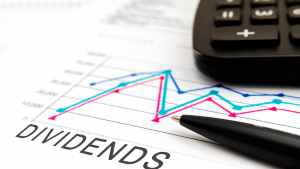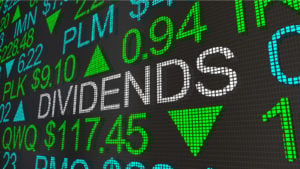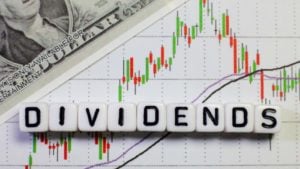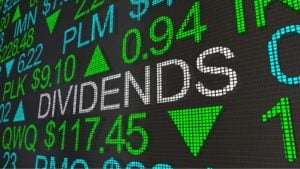In these tumultuous times, with markets facing substantial headwinds from yet another financial crisis, savvy investors are on the lookout for safe havens. Perhaps the best refuge is in undervalued dividend stocks, particularly those trading at significant discounts compared to their sector peers.
Our focus is on companies that consistently raise their payouts, as dividend growth is a crucial aspect to consider. The stocks featured in the article boast strong fundamentals and represent stable businesses that have performed in the most testing market conditions. Amid the uncertainties of inflation and a looming recession, defensiveness becomes essential for investors to evaluate. That said, let’s look at seven top undervalued dividend stocks to wager on at this time. Moreover, these stocks are all trading double-digit percentages below their 52-week high prices.
| MDT | Medtronic | $79.67 |
| K | Kellogg | $67.11 |
| VALE | Vale | $15.75 |
| PFE | Pfizer | $41.35 |
| O | Realty Income | $62.87 |
| RIO | Rio Tinto | $75.46 |
| CVX | Chevron | $169.95 |
Medtronic (MDT)

Source: jittawit21/Shutterstock.com
One of the most undervalued dividend stocks to consider is Medtronic (NYSE:MDT) — one of the leading medical device giants, operating across 150 countries, with a revenue base of over $30.5 billion in the trailing 12 months. Moreover, it boasts an extensive product portfolio covering multiple health conditions, backed by a robust patent base that grants it impressive pricing power. This is evidenced in its A-graded profitability profile, which shows double-digit expansion across most metrics.
As supply disruptions and hospital staffing shortages abate, the company will return to winning ways again. Analysts expect the firm to generate single-digit growth across its top line again from fiscal 2024. Despite the challenges, it still boasts a rock-solid liquidity position, featuring over $11 billion in cash, offering ample flexibility and the ability to support its dividend. It yields 3.4%, which is 120% higher than the sector median. Additionally, it’s trading at just 3.5 times forward sales, almost 21% lower than its 5-year average.
Kellogg (K)

Source: iQoncept/shutterstock.com
Another one of the top undervalued dividend stocks to consider is breakfast-food titan Kellogg (NYSE:K), which stands out as one of the most dependable dividend stocks in its industry. In fact, it’s currently offering an enticing forward yield of over 3.5% with an impressive 18-year streak of payout growth. It operates a formidable business that has held up remarkably well in the current economic climate.
The company’s impressive portfolio of well-known brands drives remarkable profitability for the firm. Despite the challenging business environment, its profitability metrics are virtually in line with its historical averages. In fact, the inflation-led price bumps for its products have effectively offset the volume declines in recent quarters.
Consequently, the firm Kellogg exceeded Wall Street’s revenue expectations by $130 million in its most recent quarter. It marks the eighth consecutive quarter, beating expectations on both lines. As we advance, it projects 5-7% organic growth in 2023, trading at just 1.4 times forward revenue estimates.
Vale (VALE)

Source: Shutterstock
Vale (NYSE:VALE), a leading South American metals and mining powerhouse, appears poised for a bright future as the top iron ore producer. Iron ore is a critical component in steel production, which reached its highest price in July last year. Moreover, with the likely surge in U.S. infrastructure spending, China’s reopening, robust automobile and airplane demand, and increased defense spending, expect prices to stay elevated.
Vale annualized EBITDA has exceeded $21 billion this year, representing almost a 50% bump on a year-over-year basis. Additionally, Vale’s investments in other metals, such as copper and nickel, will help boost its top and bottom-line results in a low-carbon economy. Vale boasts an outstanding 4.6% yield on the dividend front, with its stock trading 25% below its 52-week high price.
Pfizer (PFE)

Source: Shutterstock
Biotech giant Pfizer (NYSE:PFE) has been anything but dull over the past couple of years. Its stock and fundamentals soared to new heights following the release of its hugely successful coronavirus vaccine, Comirnaty. It reported a staggering 95% increase in revenues from 2020 to 2021, reaching a whopping $81.3 billion. However, with the anticipated decline in vaccine demand, investors feel hesitant to invest in PFE stock.
Nevertheless, the company’s financials have been revitalized by its coronavirus vaccine, opening up new doors and opportunities. Its management expects non-Covid sales of about a billion through 2030, representing a healthy 7% growth from 2019.
In a strategic move, Pfizer announced a $43 billion acquisition of Seagen, looking to bolster its growing oncology portfolio. The combination could potentially generate $10 billion in new revenue by 2030. As we advance, analyst estimates for fiscal 2024 expect sales to increase by 74.6% from 2019. Furthermore, Pfizer offers an appealing dividend yield of 4.07%, boasting 12 consecutive years of dividend growth, while its stock is down 27% from its 52-week high price.
Realty Income (O)

Source: Shutterstock
California-based Realty Income (NYSE:O) is one of the most popular office real-estate-investment-trusts (REIT). It invests in a well-diversified portfolio of detached office buildings covering more than 80 different sectors. Despite the economic slowdown, the company remains as steadfast as ever in rewarding its shareholders. To put things in perspective, it has raised its payouts in the past 102 consecutive quarters. It boasts an excellent dividend yield of 4.8%, ahead of its 4-year average of 4.2%.
Furthermore, occupancy rates for the REIT are extraordinary at 99%, with an average lease term of almost 10 years. Additionally, it has managed its operational expenses effectively, with considerable declines as a percentage of total revenues. O stock is down 16% from its 52-week high price and still has a strong upside potential ahead.
Rio Tinto (RIO)

Source: Shutterstock
Rio Tinto (NYSE:RIO) is a top metals and mining player. One of the top producers of iron ore, and other ‘energy transition’ metals such as lithium and copper, the firm has performed remarkably well. Moreover, despite market weaknesses, it’s one of the lowest-cost producers of metal worldwide, still generating double-digit growth across its gross, EBITDA, and net margins.
Although China’s slowing construction business affected the 2022 demand outlook for iron ore, industry experts remain optimistic about its potential this year. Additionally, the company could see millions in new revenue with the growing demand for key metals in electrification such as lithium. Its $25 billion investment plan over the next two years foreshadows robust revenue growth and, in turn, higher dividends for investors. It’s returned more than $75 billion in dividends to its investors over the past decade. Tipranks’ analysts forecast a 41% upside in its price from current levels.
Chevron (CVX)

Source: Shutterstock
Chevron (NYSE:CVX) stands out as arguably the best pick in the energy space. That’s partly thanks to its recent 6% dividend bump following yet-another earnings smasher. It’s currently paying $1.5 per share, boasting a yield of 3.9%, having grown its payouts for 37 consecutive years.
It reported a record-breaking profit of $35.5 billion in 2022 due to robust oil prices. As we advance, oil prices will continue to remain strong, positioning the company for continued success from a profitability standpoint.
Last year, the oil and gas giant generated an operating cash flow of $47 billion, representing a year-over-year growth of over 69%. Consequently, its cash balance has soared to over $17.9 billion, representing a 215% increase over the past year. Chevron’s targeted annual investments range between $13 to $15 billion, ensuring healthy cash flows while providing ample wiggle room for dividend growth and value creation through share buybacks.

